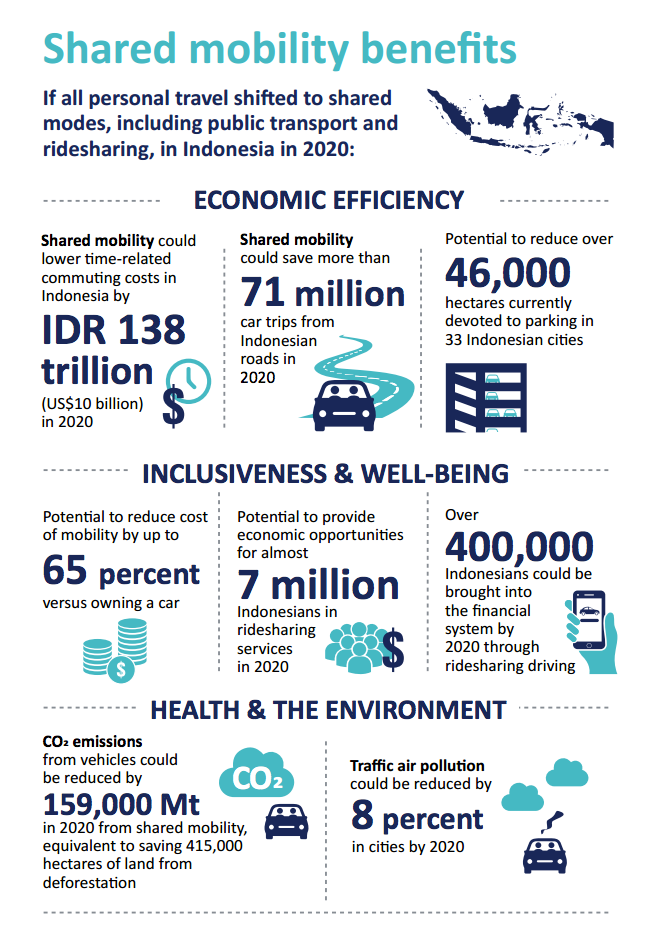Rethinking Urban Mobility in Indonesia: The Role of Shared Mobility
By Amy Smith, Policy Research Data Analyst
What would Indonesian cities look like in 2020 if the country embraced shared mobility? Given the country’s rapid rate of urbanization and its enthusiastic adoption of ridesharing, it’s an important question, with implications for the country’s 250 million people and city leaders designing their communities for the future.
We have tried to come up with an answer.
Indonesia is a particularly interesting country to carry out such a study. Research into how technology is changing urban mobility is only just beginning, but a consensus is emerging that app-based ridesharing services can have a wide range of benefits.
However, much of this research is being done in urban rather than urbanizing environments. Uber in Indonesia provides a unique opportunity to begin to address this research gap. It also has implications for leaders across the Asia Pacific, where scores of cities are grappling with the same issues.
The research by Singapore-based think tank AlphaBeta draws upon data on existing transportation infrastructure, digital maps, and travel behavior as well as rider and driver surveys from Uber. The first of its kind, the study envisions a scenario in which all personal travel has shifted to shared modes, including public transport and ridesharing. It covers 33 major cities across Indonesia, including the 15 cities where Uber is currently available. Here are some of the key findings:

“We are excited to be a part of Indonesia’s development story. This research shows how technology is helping bring shared mobility to multiple cities across Indonesia,” said Mike Brown, Regional General Manager, Asia Pacific, at Uber. “We look forward to partnering with city leaders to unlock the full benefits that shared mobility brings to riders, drivers and cities.”
Download the full report.
Read in Indonesian.